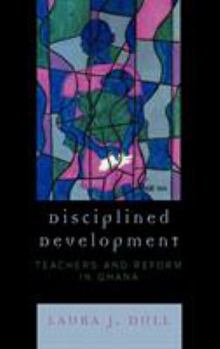Disciplined Development: Teachers and Reform in Ghana
Drawing on Foucault's analysis of disciplinary power and Gramsci's theories on hegemony, Laura J. Dull argues in this insightful volume that Ghanian teachers' diverse roles-as moral disciplinarians, ambivalent partners with global donors and lenders, romantic racialists of Africans-illustrate the ways in which educators deploy history and nationalism as strategies of power in support of, but also in opposition to, dominant systems. On the one hand, by enforcing strict morality, 'modern' attitudes and hard work in schools, teachers appear to consent to the hegemonic terms for development that their leaders have adopted: neo-liberal economics and liberal democracy, Christian morals and work ethics, and scientific rationalism. In the discourse of the World Bank and United States Agency for International Development, teachers become their 'partners' when they teach children to avoid acts of national 'indiscipline, ' as Ghanians would say, such as ethnic prejudice or corruption. On the other hand, however, teachers warn children to be skeptical of immoral and deceptive 'white men' who underdeveloped Africa and continue to undermine Ghana's autonomy. Discipline therefore becomes necessary and important because it provides the means by which the country will finally achieve de-colonialization and independence
Format:Hardcover
Language:English
ISBN:0739110500
ISBN13:9780739110508
Release Date:May 2006
Publisher:Lexington Books
Length:118 Pages
Weight:0.67 lbs.
Dimensions:0.5" x 6.3" x 9.0"
Customer Reviews
0 rating





